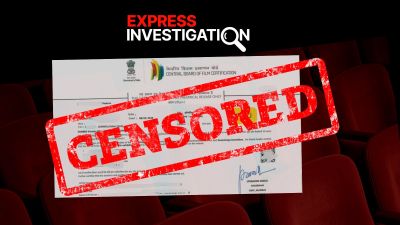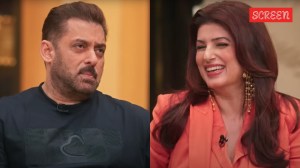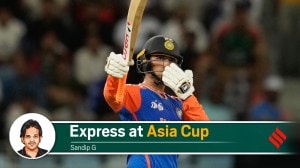Blow hot, blow cold Advani is the Sangh Trojan horse
The elevation of L K Advani as Deputy Prime Minister is part of an offensive by the Sangh Parivar and the Hindutva brigade in the BJP which ...

The elevation of L K Advani as Deputy Prime Minister is part of an offensive by the Sangh Parivar and the Hindutva brigade in the BJP which believes the only way to revive the party is a re-assertion of its ideology. George Fernandes may have mooted the idea and consulted the allies but behind him was the Sangh.
For the past one-year-and-a-half, Prime Minister Atal Behari Vajpayee had been faced with this question many times but refused to take the bait. Successive electoral reverses, particularly in UP and Uttaranchal, have now weakened his position and compelled him to learn what he described as ‘‘hard lessons’’.
Since the electoral reverses, the BJP brass has been drawing up a strategy for the nine state elections next year and the Lok Sabha polls the year after that. The plan includes early elections in Gujarat and Maharashtra to test the waters, see if the Congress-NCP government in Mumbai can be toppled, revamp the organisation and pursue a two-track policy of the organisation pursuing its core agenda while the Government sticks to the NDA’s agreed programme.
The retention of Narendra Modi as Chief Minister despite the international outcry over Gujarat, the appointment of temple-supporter Vinay Katiyar as party chief in UP, the RSS endorsement of the VHP’s stand that it would not abide by the court’s verdict on Ayodhya, the PM’s statement in Lucknow that the party had never given up the Ayodhya issue and now the appointment of Advani as Deputy PM are all straws in the wind.
Advani is seen as the ideological mascot of the BJP-RSS family, and though he has tempered his statements in the past couple of years, he is seen as someone who may make tactical adjustments in order to run a coalition but would not make any compromise on the fundamentals.
The allies have accepted him as Deputy PM — Chandrababu Naidu was among those who welcomed the move today — and this has helped settle the question of succession, earlier in doubt. With the Congress recovering and their own dependence on the Central Government, the allies are not in a position to rock the boat just yet. But they may feel threatened by the possibility of a resurgent BJP as elections draw near in the states in which the regional parties are in power.
It is possible that while the BJP and the Sangh take an increasingly assertive line on a variety of issues — the RSS has now called for the trifurcation of Jammu and Kashmir and this would be on religious lines — paradoxically it may be an increasingly moderate and reasonable Advani who comes to the fore in the Government.
As the man who led the party from two MPs to 119, who has a grip over the organisation and a following in the parliamentary party and to whom ministers in the cabinet often report, Advani is not likely to be satisfied just with the nomenclature of Deputy PM.
The civil service will look at him in a new light and foreign powers will start to deal with him at an informal level though foreign dignitaries used to call on him otherwise too. He has anyway played a major role in decision-making — the Agra declaration did not go through because of his reservations, Modi owes his survival to him and the consensus on Krishan Kant as President evolved by the PM fell through because of opposition from him and Fernandes.
With the formalisation of his position as Vajpayee’s successor and because the PM has never been given to micro-management, his clout is bound to increase in the administration and also in the party.
The question is how soon he gets the ultimate prize — the prime ministership. Will it happen in this Parliament or will he make a bid for it in the 14th Lok Sabha. He is not likely to dethrone Vajpayee and will have his eyes set on 2004, unless Vajpayee decides to abdicate in his favour earlier.
No PM likes to share power unless there are compelling reasons for it. The timing of this move would only go to confirm reports of Vajpayee’s frail health, coming as it does so after the controversy over the Time article.
Under enormous pressure, Vajpayee has made a virtue of necessity and bought peace for himself and the party. Though an erosion of his own authority is implicit in the emerging situation, Advani’s appointment has given a boost to the BJP’s rank and file, signalling the closing of ranks by the top leadership — a collective leadership that is prepared to share power — and a determination to reverse the incumbency factor.



- 01
- 02
- 03
- 04
- 05




























